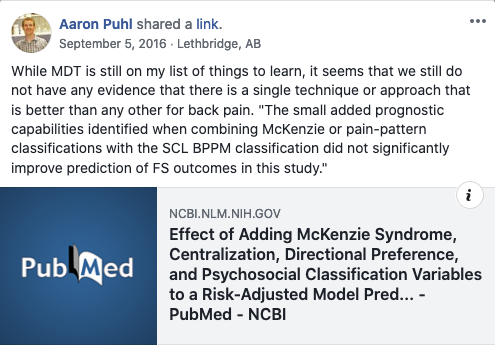Effect of Adding McKenzie Syndrome, Centralization, Directional Preference, and Psychosocial Classification Variables to a Risk-Adjusted Model Predicting Functional Status Outcomes for Patients With Lumbar Impairments The small added prognostic capabilities identified when combining McKenzie or pain-pattern classifications with the SCL BPPM classification did not significantly improve prediction of FS outcomes in this study. Additional research is warranted to investigate the importance of classification variables compared with those used in the baseline model to maximize predictive power.

#science #chiropractor #chiropractic #research #education #evidence based #patient centered #interprofessional #collaborative #rehabilitation #public health #spinal health #musculoskeletal health #ethics #pain #function #disability #QOL #knowledgetranslation


